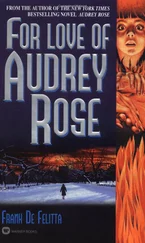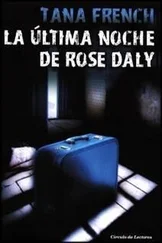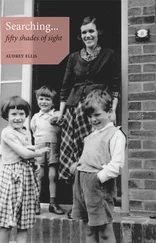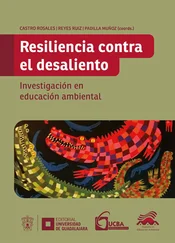“No, it’s all right,” Janice said, feeling a sudden unaccountable chill in the oven-warm booth. “I don’t want to bother her. I just called to see how she is.”
On the walk back to the Criminal Courts Building, Janice went into a pharmacy to buy some aspirin. Her head felt light, and the chill persisted.
Inside the lobby, she stopped at a fountain and took three aspirin. As she rose from the water spout, a wave of dizziness seized her, forcing her to grab onto the porcelain basin to keep from falling. She was trembling. Uncontrollably. Dear God, what was wrong? What was happening to her? It had started after the phone call. Actually, during it. Something in their conversation. Something Miss Alderman had said caused her to suddenly feel ill. But what?
“Dr. Perez, tell me.…”
Janice heard Brice Mack’s voice as if through a filter. The trembling had stopped, but the chill persisted. That, and the empty hollow feeling of encroaching doom, which seemed to be moving now at a swifter pace.
A dry cough from Bill beside her caused her to open her eyes and steal a glance at him. He seemed blessedly out of it all—eyes shut, body slumped down in his seat, totally relaxed in a deep alcoholic euphoria. She was alone. The thought struck her in a painful way. She was alone. Bill’s withdrawal into bitterness and his deepening self-absorption had made any real communication between them impossible. He had shown himself to be incapable of understanding not only her, but all that was truly happening in their lives. Yes, she was alone.
“… and you say that Dr. Vassar took you into her confidence on all of her cases, including this one?”
“We worked very closely on every case, and especially this one.”
“Why especially this one?”
“Because it was unusual, unique. It defied categorizing. Dr. Vassar had never before encountered such a case.”
“And you and she discussed it at great length?”
“At great length and in great detail.”
Brice Mack referred to a page in the notebook.
“I want to call to your attention certain language in Dr. Vassar’s notebook, Dr. Perez. Certain language that requires interpretation.”
Turning slightly toward the jury, the lawyer read in a clear voice:
“In the entry dated January 18, 1967, she says: ‘[the child] tries to climb over the back of a chair—and succeeds! Appears well coordinated and shows a degree of muscular coordination and skill of an older child. (Test subject’s ability to climb over chair during wakened state.)’”
Flipping to a clipped section in the notebook, he continued:
“And in the entry dated February 20, 1967, she says, ‘results of chair-climbing test during wakened state disclosed subject unable to climb over chair successfully without falling … but within dream state is able to climb over chair and appears to show much greater creative muscular skill and coordination than one would expect in a child of two and a half.…’” Mack looked up at the witness. “How do you interpret this observation that the child seemed ‘older’ during her dream state?”
“It didn’t make sense to either of us. Because a person in a somnambulistic state may enact an event that happened at an earlier time, but in that case the person would appear younger. And yet here she was, enacting some prior event in a somnambulistic state in which she appeared to be actually older.”
“So in your discussions with Dr. Vassar, what conclusions did you reach in regard to this phenomenal behavior?”
“We could reach none. It was completely unexplainable.”
“Dr. Perez, what do you mean by the word ‘unexplainable’?”
“I mean, there was no explanation for the child’s behavior that we could give with any degree of medical certainty.”
The lawyer hesitated. He weighed the wisdom of getting into the matter of Jungian archetypes at this point. Even though Vassar had suggested this as a possibility in her final entry, he finally decided to forgo raising the issue at all. It was possible that Dr. Vassar might have been more amenable to Jungian theory than Dr. Perez would be. Besides, the first rule in questioning any witness is: Never ask a question if you are not sure what the answer will be. He moved on to the next entry.
“On April twenty-first, there is an entry which reads: ‘the window seems to be her main goal … the glass pane presenting a barrier of prodigious heat … the fires of hell? … attempts to approach glass unsuccessfully as heat too intense … stumbles back, falls, weeps.…’ Did you have discussions with Dr. Vassar about this particular entry?”
“Yes, indeed. Many discussions.”
“Did you and she discuss the significance of this behavior?”
“Yes, we did.”
“And did you come to any conclusions?”
“We both felt there may have been a memory of an incident in which the child was trapped in some sort of enclosure and sought to escape, but the escape route was painful. So there was this contradiction of moving in a direction and being repelled by it at the same time.”
“Were the child’s parents questioned to determine whether or not such an incident existed in the child’s past that would account for such a memory?”
“The file indicates that the matter was discussed with the parents and with the obstetrician who delivered Ivy, but none knew of any event in the child’s past to account for such a memory.”
Assuming an air of grave concentration, Brice Mack continued in a carefully measured voice. “Dr. Perez, assume that a child was trapped in a burning automobile, but the windows were closed and the fire blocked that avenue of escape. Do you have a medical opinion as to whether this set of circumstances might produce a similar reaction to the one you observed in the case of Ivy Templeton?”
“Yes, conceivably, that would account for such behavior.”
“And to your knowledge, the patient, Ivy Templeton, had no history of having suffered the experience of being trapped in a burning automobile?”
“Yes, that’s correct.”
Brice Mack turned to the prosecutor.
“Cross-examine.”
Scott Velie rose with exaggerated slowness. His voice seemed tired, his manner sleepy.
He said, “As I understand it, you joined the Park East Clinic in 1966, is that right?”
“Yes.”
“The same year that the parents of Ivy Templeton sought help for their child?”
“Yes, it was in 1966.”
“What month did you arrive at the clinic?”
“It was in November.”
“Early November? Late November?”
“It was after Thanksgiving.”
“I see.” Velie pondered this a moment. “So that, in actuality, you commenced your internship only a few weeks before Ivy Templeton became a patient of Dr. Vassar’s?”
“Yes.”
“And yet new as you were to the psychiatric profession, you maintain that Dr. Vassar took you into her complete confidence on a case so unusual and unique that it defied categorizing ?”
Dr. Perez licked his lips.
“Yes, that is correct.”
“Is it customary in the psychiatric field for psychiatrists to consult with their interns on cases of behavior so complex as to be, and I quote you, ‘unexplainable with any medical certainty’?”
“Dr. Vassar did so,” Perez answered simply. “She was a remarkable woman.”
“Well, how much did you actually participate with her on this case?”
“As I said before, we worked together very closely on it.”
“How?”
“After each session we would review the substance of what happened and what was said and discuss it.”
“And together arrive at conclusions?”
“Sometimes, when it was possible to do so.”
Читать дальше
